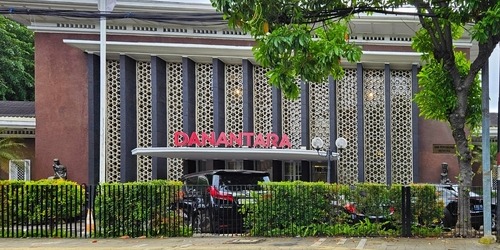Can Indonesia’s new wealth fund lift or sink its economy?
In February 2025, Indonesia launched Danantara, a sovereign wealth fund tasked with managing $900 billion in state-owned enterprise (SOE) assets to propel economic growth.
Amid a turbulent economic landscape - marked by a weakening rupiah, a contracting equity markets space, and waning investor confidence - Danantara represents a bold bet on transforming Indonesia’s economy.
Indonesian president Prabowo Subianto envisions it as a driver of propelling GDP growth from 5% to 8% by 2029, emulating giants like Singapore’s Temasek. Yet, public skepticism warns of governance risks and parallels to Malaysia’s 1MDB scandal.
Potential to elevate Indonesia
Danantara’s ambitious scope - consolidating 65 SOEs, starting with seven giants like Bank Mandiri and Pertamina - offers a pathway to address Indonesia’s economic turbulence. By streamlining SOE operations, it could boost efficiency, reduce fiscal burdens, and unlock $20 billion in initial funding for high-impact sectors like infrastructure, renewable energy, and nickel downstreaming.
These investments could attract foreign direct investment (FDI), which is critical as investor confidence falters (e.g., LG Energy Solution’s $8.5 billion EV project withdrawal).
If successful, Danantara could mirror Temasek’s role in Singapore, where state-led investments drive 5-6% annual GDP growth. For Indonesia, this could stabilize the rupiah, battered by global commodity price swings, and restore market momentum.
Beyond growth, the wealth fund could empower Indonesia to retain more economic value, addressing a longstanding issue for OIC nations often exploited by global corporations for low-value production. By investing in downstream industries like nickel processing, it could shift the country from raw material exporter to high-value producer, boosting national wealth.
Its global advisory board, including billionaire and hedge fund manager Ray Dalio, signals intent to court international capital, positioning Indonesia as a regional economic powerhouse.
Risks that could compound challenges
Danantara’s governance structure is a glaring concern, threatening to amplify Indonesia’s economic challenges. Unlike Temasek’s independent board, Danantara’s leadership raises fears of cronyism. National auditors (BPK, KPK) lack direct oversight, requiring House approval to probe finances.
The appointment of Thaksin Shinawatra, Thailand’s former prime minister ousted in a 2006 coup and dogged by corruption allegations, to the advisory board further erodes credibility, calling Danantara’s integrity into question. This move risks alienating investors already wary after the Jakarta index responded negatively on the fund’s launch day.
Weak governance could exacerbate currency volatility and capital flight, as seen in recent market trends. If Danantara bails out underperforming SOEs without reforms, it risks draining public funds - $325 trillion IDR from budget cuts is already committed. A 1MDB-like scandal, where political influence led to a $4.5 billion loss, could deepen the rupiah’s slide and deter FDI.
The Business Judgment Rule, shielding officials from liability, and optional supervisory committees heighten moral hazard, potentially turning Danantara into a political slush fund rather than an economic stabilizer.
Malaysia’s tale of triumph and tragedy
Malaysia, an OIC peer with a commodity-driven economy, offers a dual perspective on state-led investment through Khazanah Nasional Berhad and the 1MDB scandal - models of success and failure for Danantara to heed.
Khazanah, established in 1993, manages $40 billion in assets and has driven Malaysia’s economic growth (e.g., 5.6% GDP growth in 2022) by professionalizing SOE management and investing in technology and healthcare.
Unlike Danantara’s politically driven structure, Khazanah’s independent audits and professional board have attracted FDI, stabilizing Malaysia’s economy during commodity volatility. Its disciplined approach to high-return projects offers a roadmap for Danantara to boost Indonesia’s markets and rupiah.
However, Khazanah’s early missteps, like bailing out Malaysia Airlines, warn Danantara against propping up inefficient SOEs without reforms, which could strain Indonesia’s budget amid 2025’s turbulence.
On the other hand, The 1MDB scandal, where $4.5 billion was siphoned off through corruption starting in 2009, underscores the perils of weak governance. Controlled by then-premier Najib Razak, 1MDB lacked independent oversight, leading to massive debt and a weakened ringgit.
Thaksin Shinawatra’s advisory role in Danantara echoes 1MDB’s political entanglements, amplifying fears of elite capture.
To avoid 1MDB’s fate, Danantara must enforce rigorous audits and insulate its board from controversial figures, ensuring funds fuel growth, not enrichment.
Malaysia’s contrasting experiences highlight a clear lesson: professional governance is critical to economic success. Khazanah’s transparency offers Danantara a path to stabilize Indonesia’s economy, while 1MDB’s collapse warns of the catastrophic risks posed by political interference, which could deepen Indonesia’s currency and confidence crises.
High-stakes gamble
Danantara stands at a crossroads. If it adopts Khazanah’s professional governance and strategic focus, it could elevate Indonesia’s economy, stabilizing markets and attracting FDI to counter 2025’s turbulence.
However, governance flaws - political leadership, Thaksin’s scandal-tainted appointment, and weak oversight - risk a 1MDB-like disaster, deepening currency woes and investor distrust.
To succeed, Danantara needs transparent audits, a professional board free of controversial figures, and clear investment criteria, insulated from cronyism.
As Indonesia navigates global headwinds, Danantara’s execution will determine whether it becomes a beacon of growth or a costly misstep. Policymakers must heed OIC lessons to ensure it lifts, not sinks, the nation’s prospects.
Rianovel Mere is a consultant and project manager at DinarStandard

Rianovel Mare